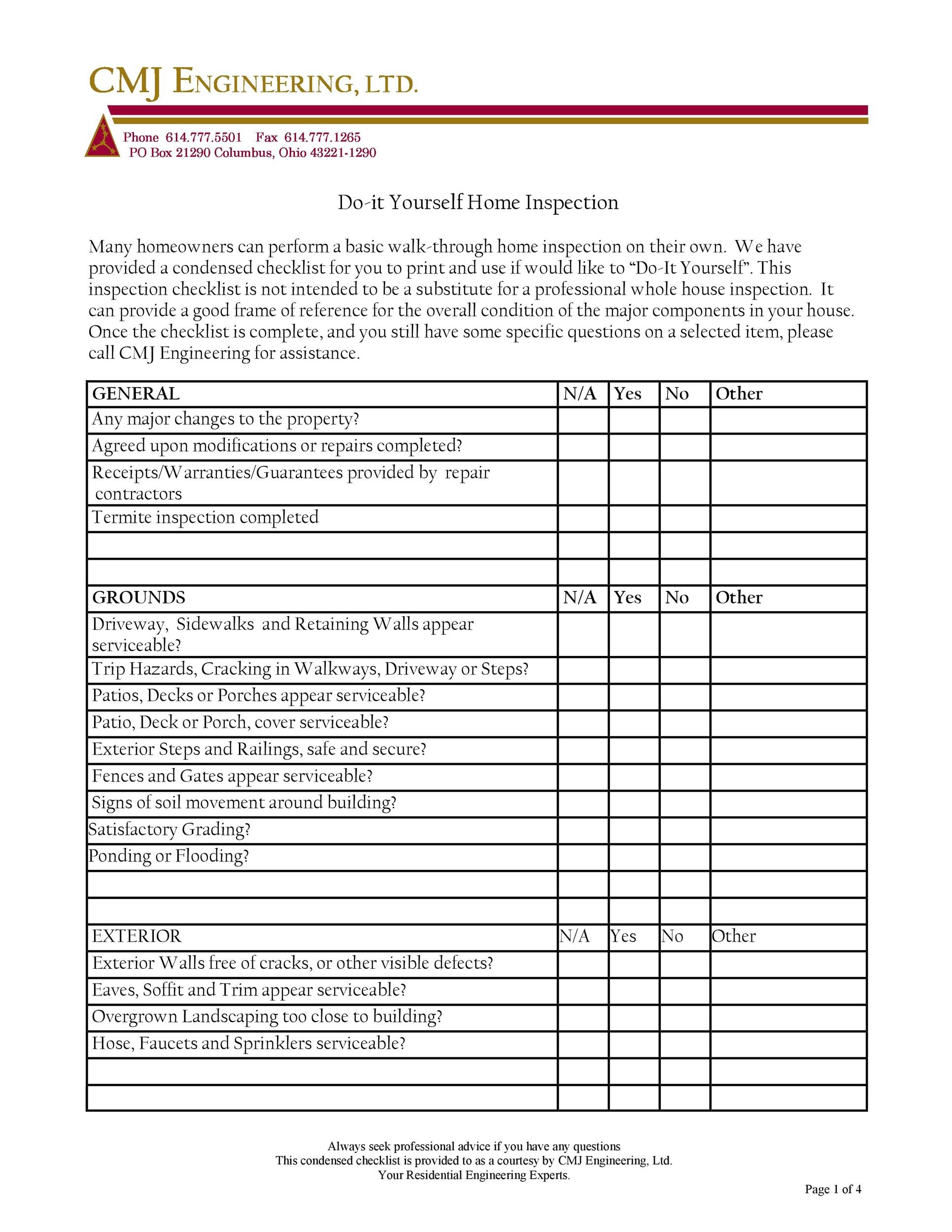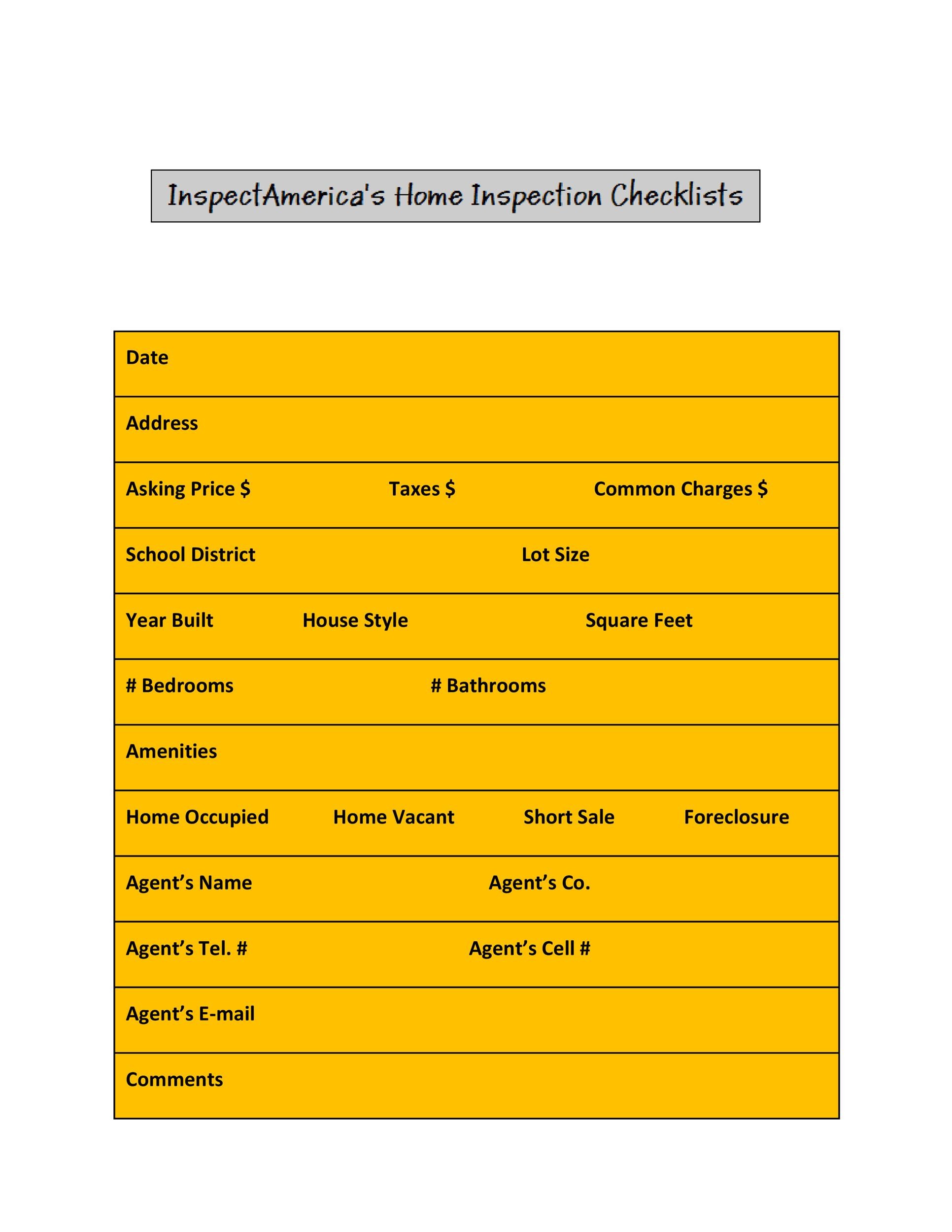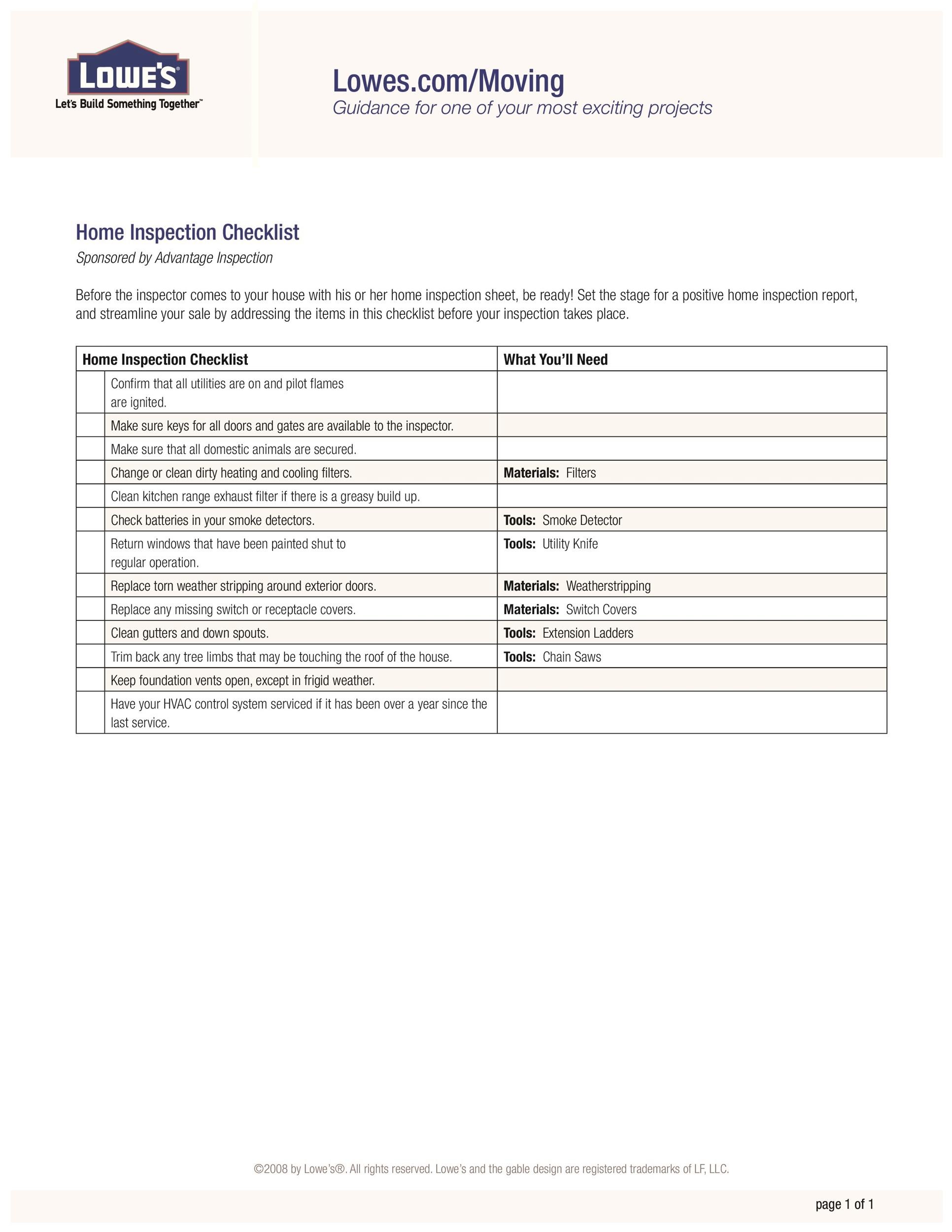
Does the garage door easily open and close?ģ2. Are there any noticeable leaks under the sinks (bathrooms and kitchen) or rusted pipes? Miscellaneousģ1. How is the water pressure from the faucets and showers?ģ0. Has the electrical panel been recalled? PlumbingĢ8. Do the appliances appear to be well-maintained? What are their ages? ElectricalĢ6. What appliances will be included with the sale?Ģ2. Is there a working exhaust fan in the kitchen? AppliancesĢ1.

Does the water heater produce hot water? How old is it?Ģ0. Do the heating and AC systems appear to be working?ġ9. Does the house smell? Can you identify the source?ġ8. If the basement is unfinished, what kind of insulation is there? Heating and Coolingġ7. Does the attic have sufficient insulation and ventilation?ġ6. Are there any visible signs of water intrusion or moisture?ġ5. Are the joints around the window frames caulked? House Interior Attic and Basementġ4. Can you spot any signs of moisture around the frames or between panes?ġ3.
HOME INSPECTION CHECKLIST CRACKED
If it feels bouncy, there may be cracked or rotted boards. Does the home have a deck? If so, test the structural boards by jumping. Are the walkways and driveway in good condition?ġ0. Does the drainage slope away from the house?ĩ. Do you notice any evidence of termite damage or rotted wood? Yard and DeckĨ. Are there any large trees growing near the foundation?ħ. Can you spot visible cracks on the outside or inside walls?Ħ. Does any part of the ground near the foundation seem soggy or sunken?ĥ. Do the gutters properly drain? FoundationĤ. Are any shingles cupping, curling, cracking or missing?ģ. Use our checklist below to help you spot potential issues in various areas of the home. The formal home inspection typically won’t occur until after you’ve made an offer and it’s been accepted by the seller, so save yourself some time and heartbreak by being thorough during your home search.ĭuring the initial home tour, you should mark down specific areas of the house that you want your inspector to examine more closely. Once you have zeroed in on your perfect neighborhood(s), these are the most common things to look for as a buyer, in preparation for the more in-depth work of the formal home buying inspection. There are numerous sites that track these statistics so you can do your homework before physically visiting the neighborhood: If you have a family or plan to start one, it’s good to know the crime rate and quality of the local school systems beforehand.

You’ll be talking to this person a lot for weeks, if not months, and compatibility is important!”Īmber Taufen | HomeLight Research Local Crime Rates and School Districts Ask for references, and don’t forget to consider personality fit.

Take your time getting to know them, and make sure to get details about their list-to-sales-price ratios - for buyers, you want to find an agent who’s able to get a low sales price compared to the list price, which means that their buyer clients typically pay less than asking price. “It’s smart to interview more than one agent and ask them lots of questions about their niche, their level of experience, and their negotiating skills. You can also use real estate forums and directories, such as Zillow or, to find agents with good reputations in your area. The best way to find a realtor you can trust is by asking for a referral from your network. Find a Real Estate Agent With High Ratings

Doing your due diligence prior to starting your search can help alleviate some of the uncertainty. House hunting can be an overwhelming process, whether you have been through it before or not. We’ve put together a list of what to look for when buying a home to help you spot them and navigate your search. There are numerous red flags that can pop up while checking out a house. When it comes to purchasing a new home, what you see isn’t always exactly what you get.


 0 kommentar(er)
0 kommentar(er)
